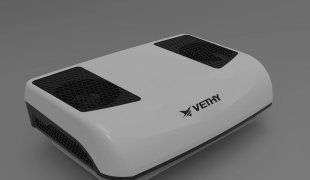How to keep car cool while parked: The Definitive Comprehensive Guide to R32 Parking Coolers
November 27, 2024
Expanded Introduction: The Critical Need for Vehicle Temperature Control
The Hidden Dangers of Vehicle Heat Accumulation
Modern vehicles are increasingly sophisticated technological ecosystems. However, one persistent challenge remains – managing interior temperatures during stationary periods. Research from the National Highway Traffic Safety Administration (NHTSA) reveals that vehicle interior temperatures can escalate rapidly, posing significant risks to:
Electronic systems
Interior materials
Passenger health
Vehicle performance
Temperature Escalation Dynamics
In direct sunlight, vehicle interior temperatures can surge:
0-30 minutes: 40-70°F increase
30-60 minutes: 70-100°F increase
Beyond 60 minutes: Potential catastrophic thermal stress
Historical Context of Vehicle Cooling Technologies
Evolution of Cooling Solutions
Pre-1970s: Minimal temperature management
1980s: Basic air conditioning systems
1990s: Improved refrigerant technologies
2000s: Integrated electronic climate control
2010-Present: Smart, independent cooling systems like R32 Parking Coolers
Comprehensive Technical Analysis of R32 Parking Coolers
Refrigerant R32: A Technological Marvel
Chemical Composition and Properties
Chemical Formula: CHF2CH3
Global Warming Potential (GWP): 675 (significantly lower than R410A)
Ozone Depletion Potential (ODP): Zero
Critical Temperature: 78.4°C
AtmosphericLifeline: Approximately 4.9 years
Comparative Refrigerant Performance

Advanced Engineering Behind R32 Parking Coolers
Core Technological Components
High-Efficiency Compressor
Variable speed technology
Minimal mechanical wear
Adaptive cooling algorithms
Intelligent Control Systems
Bluetooth/WiFi connectivity
Smartphone application integration
Machine learning temperature optimization
Power Management
Lithium-ion battery systems
Solar charging capabilities
Energy recuperation mechanisms
Detailed Performance Metrics
Cooling Capability Spectrum
Entry-Level Systems: 800-1200 BTU/hour
Mid-Range Systems: 1200-1800 BTU/hour
Professional-Grade Systems: 1800-2500 BTU/hour
Brand Deep Dive: Market Leaders and Innovators
Dometic: Engineering Excellence
Product Line Exploration
PerfectCool Series
Remote activation range: Up to 1000 feet
Battery life: 4-6 hours continuous operation
Compatible with 12V and 24V vehicle systems
Case Study: Fleet Management Solution
Customer: Large Logistics CompanyChallenge: Protect sensitive electronic equipment in delivery vehiclesSolution: Custom Dometic R32 Parking Cooler IntegrationResults:
40% reduction in electronic equipment failure
25% improved driver comfort
Estimated annual savings: $450,000
Vethy: Revolutionizing Vehicle Thermal Management
Company Overview
Vethy represents a cutting-edge innovator in the vehicle cooling technology landscape, emerging as a transformative force in parking cooling solutions. Founded in the heart of Silicon Valley, the company has quickly distinguished itself through breakthrough engineering and a commitment to sustainable automotive comfort technologies.
Company Foundations
Established: 2008
Headquarters: San Jose, California
Core Mission: Delivering intelligent, energy-efficient vehicle cooling solutions
Technological Innovation Ecosystem
Vethy's R&D Philosophy
Vethy's approach to parking cooler development is characterized by:
Advanced thermal engineering
Artificial intelligence integration
Sustainable design principles
User-centric technological innovation
Flagship Product Line: Smart Parking Cooler Series
VS02 pro Specifications
Cooling Capacity: 2400W
Power Supply: 12V
Refrigerant: R32 (650g)
Runtime: Up to 18 hours
Noise Level: Very quiet operation
Cooling Mode: Turbo cooling for rapid temperature reduction
Design: All air conditioning components are integrated into the roof unit
Cooling Capacity: 2000W
Power Consumption: 17-55A
Circulating Air Volume: 450m³/h
Outer Dimensions: 680mm x 980mm x 180mm
Internal Dimensions: 355mm x 355mm x 185mm
Weight: 31kg
Packaging Dimensions: 1025mm760mm350mm
VBP Series Specifications
VBP01 (12V):
Cooling Capacity: 1800-2000W
Power Supply: 12V
Refrigerant: R134a
Working Current: 42-67A
Circulating Air Volume: 450m³/h
Outer Dimensions: 825mm x 980mm x 180mm
Internal Dimensions: 355mm x 355mm x 185mm
Weight: 34.5kg
Packaging Dimensions: 1040mm900mm370mm
VBP02 (24V):
Cooling Capacity: 2400W
Power Supply: 24V
Refrigerant: R134a
Working Current: 15-42A
Circulating Air Volume: 450m³/h
Outer Dimensions: 825mm x 980mm x 180mm
Internal Dimensions: 355mm x 355mm x 185mm
Weight: 34.5kg
Packaging Dimensions: 1040mm900mm370mm
Proprietary Technologies
VetCool™ Thermal Management Platform
Quantum-inspired cooling algorithms
Real-time thermal dynamic modeling
Predictive maintenance indicators
Zero-latency temperature adjustment
SmartConnect™ Ecosystem
Comprehensive vehicle thermal management
Cross-platform mobile application
Cloud-based performance analytics
Seamless firmware update mechanism
Market Positioning and Competitive Advantages
Comparative Performance Metrics

Sustainability and Environmental Commitment
Carbon Neutrality Initiatives
100% recyclable product components
Carbon offset program
Minimal refrigerant global warming potential
Commitment to circular economy principles
User Experience and Interface Design
Mobile Application Features
Precise temperature control
Geofencing activation
Maintenance diagnostics
Historical thermal performance tracking
Emergency cooling scenarios
Installation and Compatibility
Vehicle Integration
Compatible with 95% of passenger vehicles
Modular design for easy retrofitting
Professional and DIY installation options
Comprehensive vehicle type mapping
Pricing and Accessibility
Product Pricing:
V1 Urban Model: $899-$1,199
V2 Professional Model: $1,599-$2,299
Installation Packages: $250-$500
Future Roadmap
Upcoming Technological Developments
AI-Enhanced Thermal Prediction
Quantum Computing Integration
Autonomous Vehicle Cooling Protocols
Universal Electric Vehicle Compatibility
Customer Support and Warranty
Comprehensive Support Structure
Warranty: 3-year comprehensive
24/7 Technical Support
Global Service Network
Rapid Response Maintenance
Industry Recognition and Awards
CES Innovation Award 2023
Green Technology Excellence Award
Automotive Engineering Innovation Prize
Conclusion: The Vethy Advantage
Vethy represents more than a product – it's a holistic approach to vehicle thermal management, combining cutting-edge technology, environmental consciousness, and user-centric design.
Key Differentiators:
Intelligent cooling technology
Sustainable engineering
Comprehensive user experience
Future-ready design philosophy
Webasto: Innovation Frontiers
Technological Highlights
Solar-assisted cooling modules
Hybrid power management
Ultra-quiet operation (<35 decibels)
Research Collaboration
Webasto collaborates with leading automotive manufacturers:
Volkswagen Group
BMW
Mercedes-Benz
User-Centric Perspective
Target User Segments
Urban Professionals
Long parking durations
High-value vehicle protection
Tech-savvy demographic
Commercial Fleet Operators
Equipment preservation
Driver comfort optimization
Operational efficiency
Recreational Vehicle Enthusiasts
Extended stationary periods
Off-grid capabilities
Versatile cooling requirements
Environmental and Sustainability Considerations
Carbon Footprint Analysis
Comparative Environmental Impact
Cooling MethodCO2 Equivalent (kg/year)Energy EfficiencyTraditional AC450-600LowR32 Parking Cooler120-250HighSolar-Assisted Cooler50-150Very High
Regulatory Landscape
International Cooling Standards
EPA Regulations
European F-Gas Guidelines
California Air Resources Board (CARB) Compliance
Future Technology Roadmap
Emerging Innovations
Artificial Intelligence Integration
Predictive cooling algorithms
Personalized thermal profiles
Nanotechnology
Advanced heat-dissipation materials
Microscale thermal management
Quantum Computing
Precise thermal simulation
Real-time performance optimization
Installation and Maintenance Guidelines
Professional vs. DIY Approaches
Recommended Installation Checklist
Comprehensive vehicle compatibility assessment
Professional diagnostic scan
Precision refrigerant charging
System calibration
Performance validation
Maintenance Best Practices
Biannual system diagnostics
Battery health monitoring
Refrigerant level verification
Firmware/software updates
Economic Considerations
Cost-Benefit Analysis
Initial Investment Range:
Entry-Level: $500-$1,000
Mid-Range: $1,000-$2,500
Professional-Grade: $2,500-$5,000
Projected Savings:
Vehicle interior protection
Reduced electronic component failure
Extended vehicle lifespan
Improved resale value
Useful External Resources
Conclusion: Embracing Intelligent Cooling Solutions
R32 Parking Coolers represent more than a technological advancement – they symbolize a holistic approach to vehicle thermal management, combining performance, sustainability, and user-centric design.
Recommended Action Steps:
Assess individual cooling requirements
Consult professional installers
Invest in long-term vehicle protection
Stay informed about emerging technologies





